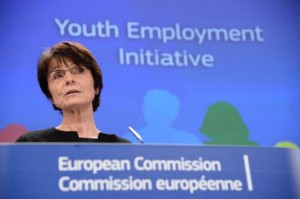
New rules to speed up funding on projects for young people
Employment and Social Affairs 27 July 2015On the 9th of July, the European Commission has adopted new rules to reduce administrative burden and enable Member States to be quickly reimbursed for spending on projects for young people. Namely, new rules regard the operations funded by two key EU programme: the Youth Employment Initiative (YEI) and the European Social Fund (ESF).
The European Commission has adopted a regulation to define standard scales of unit costs and lump sums for the reimbursement of expenditure by the Commission to Member States.
The standard scales of unit costs and lump sums in the regulation were defined on the basis of data collected among Member States. The EU Commission calls on Member States to develop their own simplified cost systems to make easier the administrative procedure to obtain reimbursements.
These measures are aimed at tackling one of the biggest bottlenecks of the EU funding system on project for young European citizens by helping EU Member States to receive funding as soon as possible.
When the EU Heads of State and Government launched the YEI in February 2013, they expected Member States to submit national schemes, enabling them to seek money from the YEI. Some countries have developed systems to benefit from easier reimbursement, while others face many problems in using the EU funds.
In 2014, the Swedish government froze the funding it has received, fearing to exceed its budget ceiling. With the aim to solve this issue, now in Sweden, fixed rates for the work of project staff and for support paid to participants have been set up. Likewise, France has adopted measures in order to submit acceptable specific national systems for defining standard scales of unit costs and lump sums. Indeed, a reimbursable unit cost of €3.600 has been agreed for each participant with a positive outcome after 12 months in the French Youth Guarantee. For several countries, this process is already underway.
With over 7 million young Europeans without a job and not in education or training, the new regulation should facilitate Member States’ implementation of the Youth Guarantee through the Youth Employment Initiative and the European Social Fund. Standard scale of unit costs could streamline the reimbursement process and should make easier for Members States to properly use funds received.




